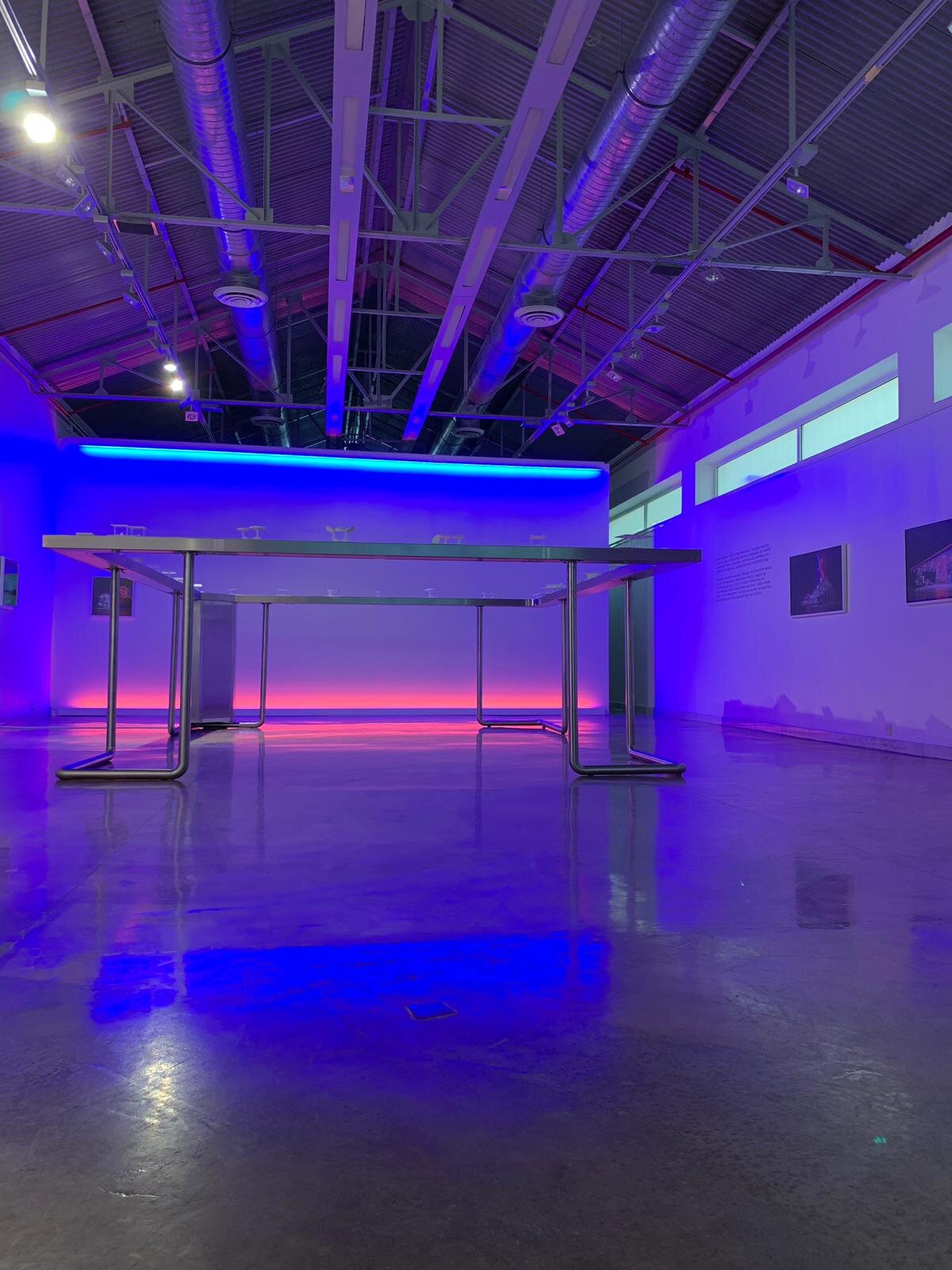CIVIL ARCHITECTURE 2019
FOREIGN ARCHITECTURE / DOMESTIC POLICY
Hamed Bukhamseen and Ali Karimi
April 23rd April – 24th April - May 23, 2019
The Sultan Gallery is pleased to present ‘Foreign Architecture/Domestic Policy’, an exhibition by Civil Architecture/Hamed Bukhamseen & Ali Ismail Karimi. Opening 7pm the 23rd of April, the exhibition looks at the overseas architecture of Kuwait and how it embodies changing ideas of citizenship, foreign policy and the branding of the nation state.
In the context of resurgent global xenophobia, the role of the Gulf city-state in Europe and the US crops up on several occasions. Often as a wary skepticism or concern over the possibility of foreign control over national resources, many of these concerns are not new, and are repeating legacies of larger questions that were posed earlier in the 20th century, with the oil embargo, or instability in the Middle East. The questions ultimately ask what it means to imagine separate nations in a world which is increasingly interdependent.
After the 1973 OPEC crisis, the country of Kuwait began undertaking a series of efforts to secure its position as one of the world’s leading exporters of crude oil. For a country of less than a million people at the time which exported 10% of the world’s oil, the narrative of the state was inextricably tied to the projections of wealth and identity outwards. This need to constantly reinforce Kuwait’s position in the global community is part of the effort to transform oil rent to intellectual and cultural capital, but also to secure political ties abroad, creating a network of allies to support the small city-state in events of aggression or international pressure.
Among the strangest and most recognizable of these investments are the not so subtly titled Q8 gas stations. These gas stations inhabit and make up a significant percentage of gas stations in Italy, Belgium, Luxembourg as well as other locations in Europe, all bearing Kuwait’s abbreviated name and brandishing the twin dhow sails as a logo. For the average passerby the inconspicuous Q8 appears to be any oil company. For Kuwait however, the creation of a second Kuwait through a network of infrastructural investments, gas stations, and branding was a way to build demand and secure a market for Kuwaiti products.
During the first Gulf War the stations were called to play a political role as well, acting as sources of funding for protests and lobbying movements after Kuwaiti assets were frozen due to the Iraqi.
CIVIL ARCHITECTURE
Civil Architecture is a cultural practice preoccupied with the making of buildings and books about them. CIVIL asks what it means to produce architecture in a decidedly un-civil time, presenting a new civic character for a glob- al condition. Since its founding by Hamed Bukhamseen and Ali Ismail Karimi, the practice has attracted a strong following for their provocative works and their offer of an alternate future to a nascent Middle East






